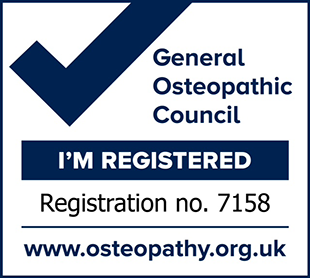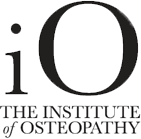Medical Collateral Ligament (Knee) Tear/Sprain
The most common ligamentous knee injury is to the MCL, (medial collateral ligament). A football player, who complains of knee pain after a bad tackle or fall, is likely to have an injury to the medial collateral ligament. A common triad of injury, (particularly in athletes) to the knee joint involves injury to the MCL, the medial meniscus and the anterior cruciate ligament, (ACL).
Unlike anterior cruciate ligament injuries, (which occur at a higher rate in women) medial collateral ligament injuries occur at equal rate in both men and women, whilst the highest incidence rates are found in individuals aged 20-34 years and 55-65 years. Nonetheless, MCL injuries can occur at any age.
The MCL has superficial and deep components, designed to provide support to the knee. The superficial MCL fibers attach to the medial femoral epicondyle and the medial aspect of the tibia. The deep MCL fibers originate from the medial joint capsule and are attached to the medial meniscus.
Causes of MCL injuries:
•Trauma;
•Acute varus or valgus stress on the knee joint
•Falls (elderly);
•Other trauma;
•Overuse syndromes, (for example, swimmers who use the breaststroke may repetitively over-stretch the MCL, leading to injury).
Symptoms of MCL Tears:
The most common symptom following an MCL injury is pain directly over the ligament. Swelling over the torn ligament may appear, with bruising and generalized joint swelling 1 to 2 days after the injury. In more severe injuries, patients may complain that the knee feels unstable and that their, “knee gives way”. Patients may also feel pain walking up and down the stairs. In addition, there may be locking in the knee joint. Symptoms of a MCL injury tend to correlate with the extent of the injury. MCL injuries are usually graded on a scale of I to III.
•Grade I MCL Tear. This is an incomplete tear of the MCL. The tendon is still in continuity and the symptoms are usually minimal. Patients usually complain of pain with pressure on the MCL and may be able to return to their sport within 2-3 weeks of rest and treatment.
•Grade II MCL Tear. Grade II injuries are also considered incomplete tears of the MCL. These patients may complain of knee joint instability. The pain and swelling is more significant and the rehabilitation period is usually between 6 and 8 weeks. Rehabilitation under the supervision of the Sports Injuries Specialist – Registered Osteopath is desirable for professional treatment and to prevent further recurrence of the injury.
•Grade III MCL Tear. A grade III injury is a complete tear of the MCL. Patients have significant pain, swelling, instability and reduction of movement in the knee joint. Surgery may be used to repair the MCL. The type of reconstruction used will depend on the exact site of the damage and the preference of the surgeon.
A visit to the Sports Injuries Specialist – Registered Osteopath, will be important and helpful in knowing what type of MCL tear has occurred and whether or not surgery will be deemed necessary. In reality, an MCL will rarely require surgery.
Investigation:
The Sports Injuries Specialist – Registered Osteopath will carry out orthopaedic tests and examinations to diagnose the injury. The patient may rarely need to be referred for a MRI scan. Magnetic resonance imaging, (MRI) is helpful for diagnosing MCL injuries as well as ruling out other injuries; (E.g. ACL and meniscal tears), but does have its limitations.
Treatment:
MCL Sprain/Tear – Knee Pain. Treatment At Harrow Osteopaths, Wembley Osteopaths, Chelsea Osteopaths by The Sports Injuries Specialist – Registered Osteopath. Regulated: Harrow Osteopaths, Wembley Osteopaths, Chelsea Osteopaths – The Sports Injuries Specialist – Registered Osteopath. How Knee Pain, MCL Sprain/Tear is treated at Harrow Osteopaths, Wembley Osteopaths, Chelsea Osteopaths – The Sports Injuries Specialist – Registered Osteopath. Knee conditions are treated with gentle, non-invasive techniques designed to help improve blood circulation and drainage of waste products and accumulated toxins. Most patients may find relief from pain and discomfort through conservative treatments and hot/cold therapy. The Sports Injuries Specialist – Registered Osteopath, will give you expert advice, (depending on your age and activity level) education and training in the use of the most appropriate assistive device. All forms of treatment are different for each patient. All examples of therapy must be discussed with the Sports Injuries Specialist – Registered Osteopath, or medical practitioner before attempting them at home.
The Sports Injuries Specialist – Registered Osteopath will provide you with a detailed, individually made treatment program to assist you in attaining full recovery. If you are in Extreme Pain and suspect a MCL tear/sprain, then call the Sports Injuries Specialist – Registered Osteopath immediately for exceptional results.
ZAHIR CHAUDHARY, BA (Hons), BSc (Hons), ND, M Ost.Med
EMAIL: emergencyosteopath@gmail.com
PHONE: 0792 100 4705; 0208 423 6209
WEB: https://www.sportsinjuriesspecialist.co.uk
HARROW OSTEOPATHIC CLINIC, 9 LITTLETON RD, HARROW, MIDDLESEX. HA1 3SY.
FITNESS FIRST ALPERTON, 197 EALING RD, THE ATLIP CENTRE, ALPERTON, WEMBLEY, MIDDLESEX. HA0 4LW.
WEMBLEY OSTEOPATHS, 31 NORVAL RD, NORTH WEMBLEY, MIDDLESEX. HA0 3TD.
CHELSEA OSTEOPATHS, 208 FULHAM ROAD, CHELSEA, LONDON. SW10 9PJ.
Leave a reply →

